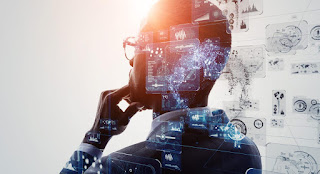The Negative Impact of Technology on Democracy and Political Discourse
The rapid advancement of technology has led to many changes in how people engage in political discourse and participate in democracy, and has had a negative impact on both. The increasing use of social media, online platforms, and other forms of technology has led to the spread of misinformation, polarization, and echo chambers, and this has created new challenges for democracy and political discourse. The negative impact of technology on democracy and political discourse is a growing concern, and it is important to understand the implications and take steps to address the issue.
One of the main negative impacts of technology on democracy and political discourse is the spread of misinformation. With the rise of social media and online platforms, it has become increasingly easy to spread false information and misinformation. This can lead to confusion, mistrust and manipulation of public opinion, and can undermine the democratic process. Additionally, the spread of misinformation can also lead to the erosion of public trust in institutions and the media, which are essential for a healthy democracy.
Another negative impact of technology on democracy and political discourse is polarization. With the increasing use of social media, people are exposed to a narrow range of viewpoints and are more likely to encounter information that confirms their existing beliefs. This can lead to the formation of echo chambers, where people are insulated from alternative perspectives and are more likely to become entrenched in their views. This can lead to increased polarization and a lack of civil discourse, which can undermine democracy and the ability of society to make informed decisions.
Furthermore, technology has also had a negative impact on political participation. The increasing use of technology has led to a decline in traditional forms of political participation, such as voting and civic engagement, and an increase in passive forms of participation, such as "liking" or sharing a post on social media. This can lead to a lack of political engagement and a lack of accountability for elected officials. Additionally, the use of technology in political campaigns and elections can also lead to a lack of transparency and accountability, and can be used to influence or manipulate the outcome of an election.
To combat the negative impact of technology on democracy and political discourse, it is important to take steps to address the issue. This can include investing in fact-checking and media literacy programs, supporting policies and regulations that protect against misinformation and disinformation, and encouraging diverse and inclusive online spaces. Additionally, it is important to invest in research and innovation, which can lead to the development of more robust and resilient democratic institutions, and to promote civic education and participation. Furthermore, people can also reduce their negative impact by being critical consumers of information, actively seeking out diverse perspectives, and participating in political and civic activities.
In conclusion, the rapid advancement of technology has led to many changes in how people engage in political discourse and participate in democracy, and has had a negative impact on both. The increasing use of social media, online platforms, and other forms of technology has led to the spread of misinformation, polarization, and echo chambers, and this has created new challenges for democracy and political discourse. The negative impact of technology on democracy and political discourse is a growing concern, and it is important to understand the implications and take steps to address the issue. This can include investing in fact-checking, media literacy programs, and supporting policies and regulations that protect against misinformation and disinformation, and encouraging diverse and inclusive online spaces. Additionally, it is important to invest in research and innovation, which can lead to the development of more robust and resilient democratic institutions, and to promote civic education and participation. By taking action, we can reduce the negative impact of technology on democracy and political discourse, and create a more inclusive, resilient and democratic society.



Comments
Post a Comment